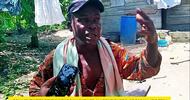Des organisations demandent l’arrêt du financement par la SFI des projets d’agrobusiness industriel qui sapent les systèmes alimentaires agroécologiques diversifiés sur lesquels repose la souveraineté alimentaire.
- Signataires
-
13 October 2022
Organizaciones solicitan que se detenga la financiación de la CFI a los agronegocios industriales que socavan los sistemas alimentarios diversificados y agroecológicos que fortalecen la soberanía alimentaria.
- Firmantes
-
13 October 2022
The partnership is expected to remove bureaucratic obstacles that hinder easy access to lands for agricultural and industrial investments.
- BusinessDay
-
21 September 2022
The Zambian farming company, backed by Norfund and the World Bank's IFC, has been sold by South Africa's Zeder Investments to a group of businessmen.
- Food Business Africa
-
30 August 2022
The World Bank’s private sector arm approved a US$200M loan to agribusiness giant Louis Dreyfus Company under the guise of “sustainable development.
Combined, land formalisation and large-scale agro-investments lead to a systematic dispossession of village land.
- Land Use Policy
-
22 July 2022
Zambeef will use the funds to upgrade its feed mill, animal housing, purchase new equipment and develop 1,000 hectares of irrigation land, among other activities.
- Farmers Review Africa
-
19 July 2022
A major loan was approved this week for an industrial food producer operating in Brazil, despite concerns that the money would ultimately fund activities that contribute to deforestation.
Pumping public dollars into the destructive industrial meat sector is neither climate-resilient nor climate-smart, say Kari Hamerschlag and Peter Stevenson. It's also fuelling land grabbing.
"Reducing the risk of land conflicts and offering opportunities for investments are critical for Sierra Leone," says the Bank's representative
À Madagascar, la société civile s’oppose à ce que les investisseurs étrangers puissent devenir propriétaires de terres malgaches. Mais la Banque mondiale insiste qu'il faut faire de la place pour de plus grosses exploitations agricoles.
La Banque mondiale et le Fonds monétaire international font pression sur le gouvernement malgache pour que les investisseurs étrangers puissent devenir propriétaires de terres malgaches
- Collectif TANY
-
20 May 2022















